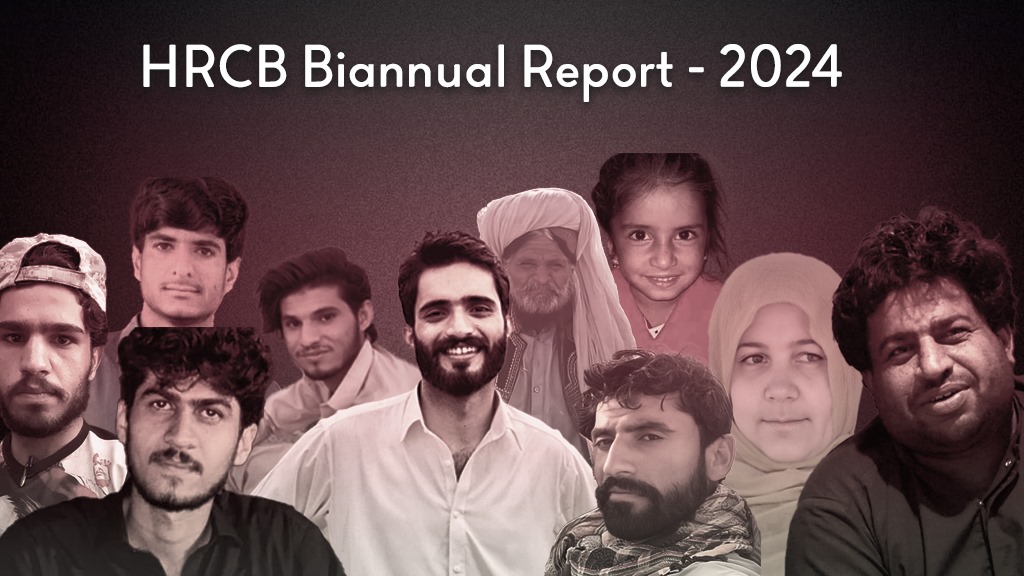Biannual Report: Human Rights situation in Balochistan Jan-June 2024
Human Rights Council of Balochistan has documented at least 306 cases of enforced disappearances and 205 killings across the region during the first half of 2024. This report aims to shed light on these issues by providing statistics and insights into the nature and extent of human rights abuses.
Enforced Disappearances:
Enforced disappearances continue to plague Balochistan, affecting people from all walks of life. Out of 306 reported cases, 305 victims were male and 1 female. Of these, 104 were released, 4 were later found dead, and 198 remain missing or their release status has not been reported.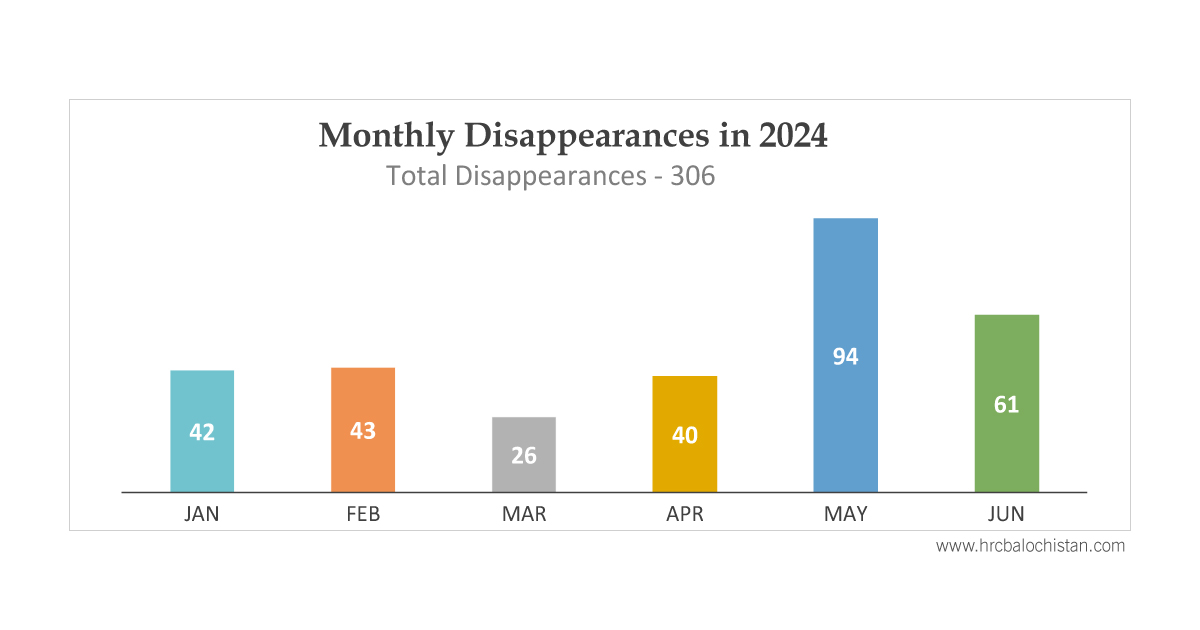
Perpetrator in 215 cases of enforced disappearance during Jan-June 2024 was FC (Frontier Corps), a paramilitary force with unaccountable power. The CTD (Counter-Terrorism Department) was linked to 45 disappearances, followed by Intelligence Agencies with 29 cases. Armed men were implicated in 11 disappearances, death squads in 4 cases and unknown perpetrators in 2 cases. The armed men are usually the criminal groups military has organized in order to help its counter-insurgency policy.
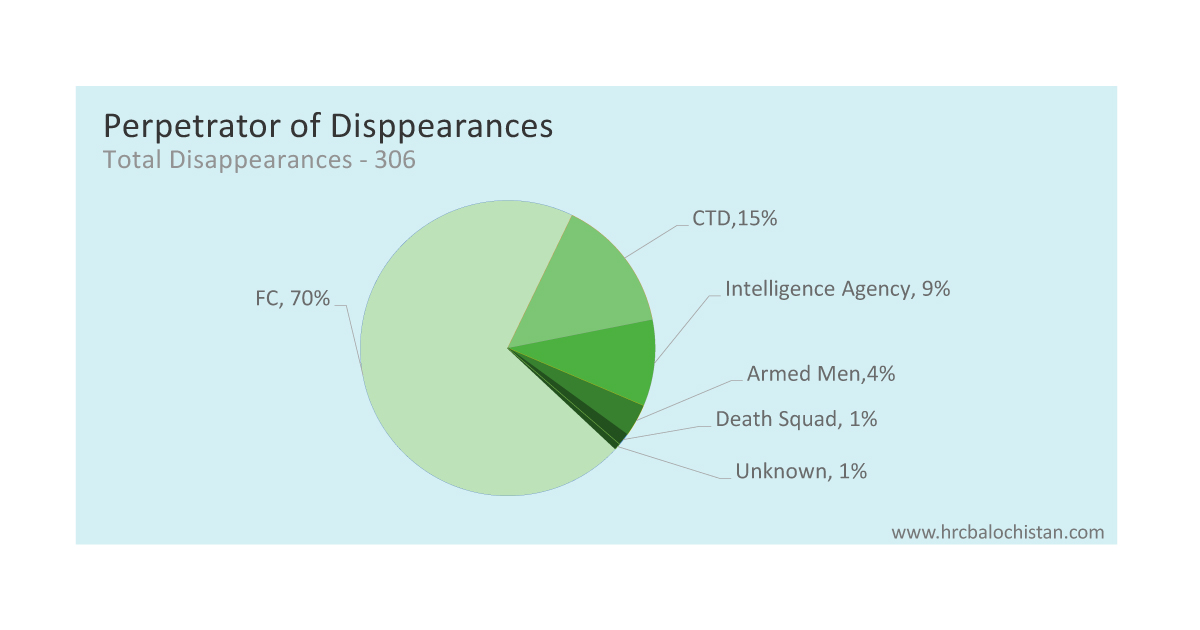
In 194 cases, the victim was picked up from the victim’s house, in front of the other family members. This was followed by detentions, which account for 91 cases. Other modes included being summoned to a camp, which accounted for 9 cases, and abductions at checkpoints, with 8 cases. In 2 instances, the mode of abduction was unknown.
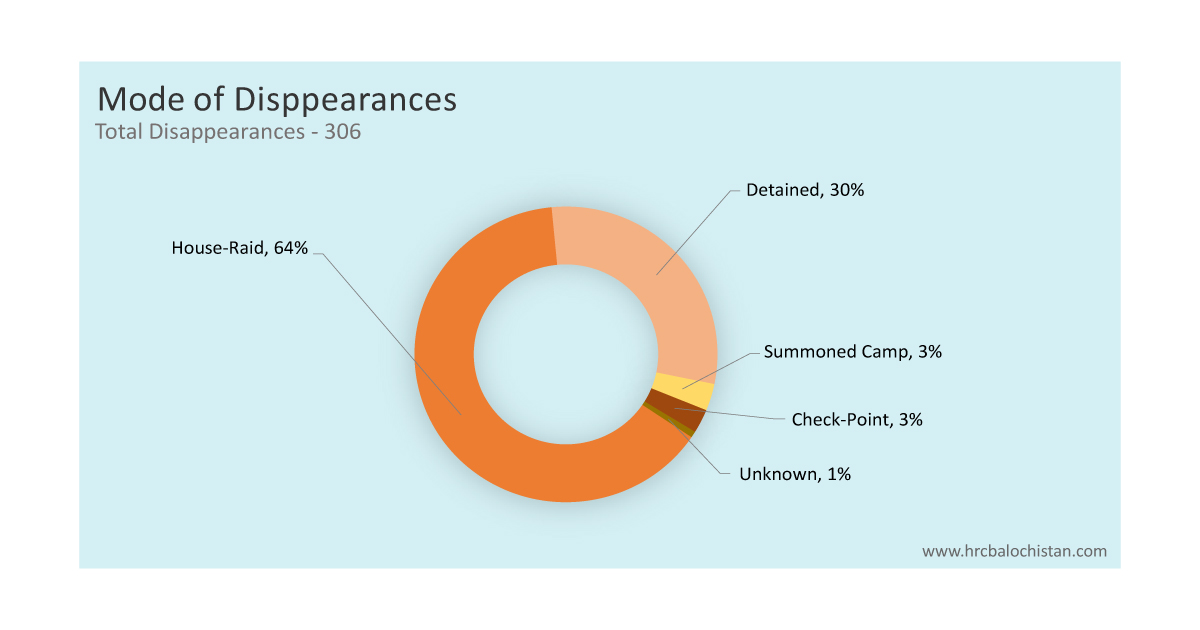
The professions 210 victims could not be ascertained, as most of people are unemployed and work on daily wages. Among those identified, 45 were students, 17 laborers, and 12 oil traders. Others included dispensers (3), shopkeepers (2), teachers (2), and farmers (2). Single cases were reported for various professions such as a levies man, shepherd, bank employee, clerk, pharmacist, poet, fisherman, police officer, mechanic, sportsman, policeman, druggist, and barber.
Highest cases of enforced disappearance were recorded in district Kech with 83 incidents, 42 in Dera Bugti, 41 in Awaran, 27 in Gwadar, 19 in Quetta, 14 in Nushki, 11 in Khuzdar, 11 in Kharan, 8 in Kachhi, 7 in Karachi, and 7 in Mastung (7). Between 5 and 1 cases were reported from Hub, and Kohlu in Balochistan and in Islamabad and Punjab. In more than twenty out of thirty-two districts of Balochistan, we could not confirm the details of the incidents.
Killings:
In addition to enforced disappearances, Balochistan has witnessed a disturbing number of killings. A total of 205 individuals have been killed over the past six months, reflecting the violent environment in the region. These killings encompass various motives and perpetrators, including targeted attacks, terrorist activities, and extrajudicial killings. The data shows that out of 205 victims, males constituted the majority with 180 individuals, while 23 were females and 2 were infants.
Mode of Killing:
The data categorizes incidents by mode of killing, revealing ‘Target Killing’ as the most prevalent, accounting for 71 cases, followed by ‘Terrorist Attacks,’ totaling 41 incidents, and ‘Honor Killings,’ involving 21 cases. Both ‘Missile Attacks’ and ‘Mutilated Bodies’ each constitute 11 incidents apiece. ‘Old Enmity’ accounts for 10 cases, while ‘Custodial Killings’ and ‘Extrajudicial Killings’ contribute 9 and 8 incidents, respectively. ‘Tribal Violence’ and ‘Fake Encounter’ make up 6 and 5 incidents, respectively. Incidents with an unknown mode of killing total 12 cases.
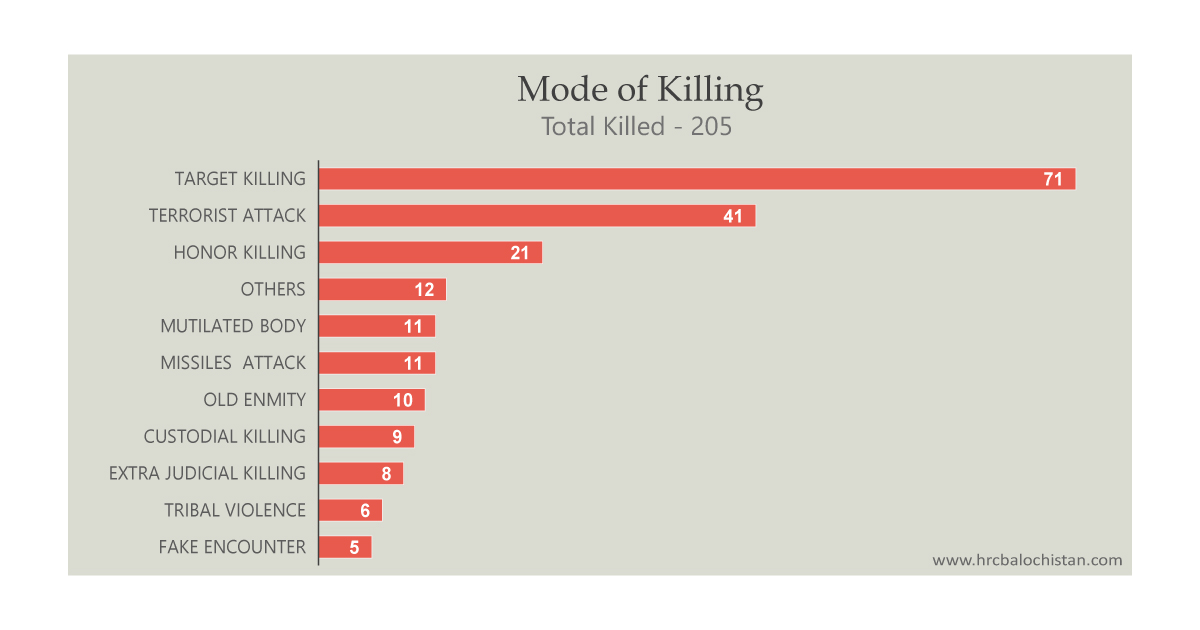
Perpetrators:
The data highlights armed men as the primary group responsible, accounting for 86 incidents. Unknown perpetrators followed with 30 incidents, with the Islamic State at 28 incidents. The Baloch Liberation Army (BLA) contributed 14 incidents, while both the Pakistan Army and Frontier Corps (FC) each had 9 incidents and 7 incidents respectively. Iranian forces, the Counter-Terrorism Department (CTD), and the Balochistan Liberation Front (BLF) each accounted for 5 incidents each. Incidents related to personal enmity totaled 15 cases.
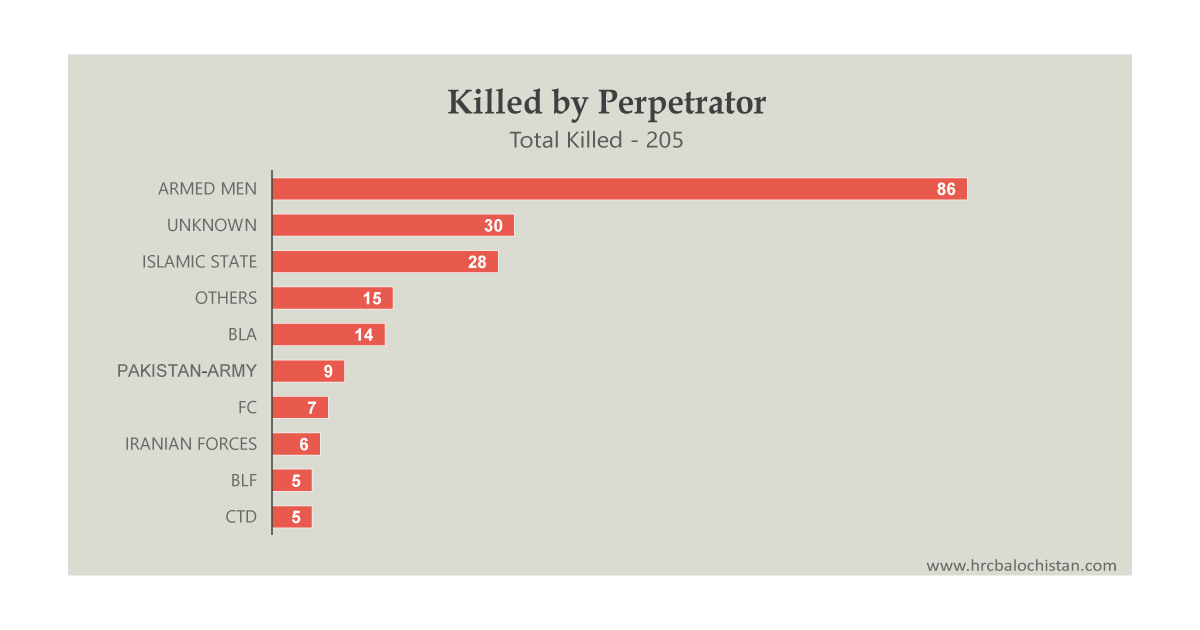
Suicides:
The alarming increase in suicide cases in Balochistan highlights the severe pressures faced by its civilians, particularly the youth and women. These suicides are often linked to harassment, blackmail, and other forms of coercion by Pakistani forces to work for them as spies, as well as economic hardships such as rising unemployment and inflation, and domestic violence. From January to July 2024, there have been 23 reported suicide cases in different parts of Balochistan. These cases were reported in Kech (5 cases), Gwadar (4 cases), Hub (3 cases), Khuzdar and Jhal Magsi (2 cases each), and Washuk, Mastung, Kharan, Quetta, Kohlu, Naseerabad, and Jaffarabad (1 case each).
Conclusion:
These findings paint a disturbing picture of persistent human rights abuses in Balochistan. Enforced disappearances, killings, and suicides create a climate of fear and insecurity. The prevalence of state forces as perpetrators demands international attention. HRCB urges international organizations and the global community to hold Pakistan accountable under the Universal Declaration of Human Rights and the International Covenant on Civil and Political Rights (ICCPR). Articles 6 (right to life), 7 (prohibition of torture), 9 (right to liberty and security), and 14 (right to fair trial) of the ICCPR are directly violated. Furthermore, enforced disappearances and killings targeting women and children violate the Convention on the Elimination of All Forms of Discrimination Against Women (CEDAW) (Article 11) and the Convention on the Rights of the Child (CRC) (Article 37), respectively.

